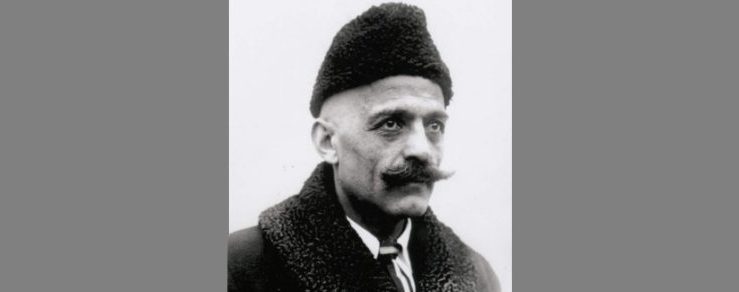Can we always make a profit?
Toward the end of In Search of the Miraculous, Ouspensky describes a newspaper reporter’s conversation with Gurdjieff at a train station. Gurdjieff made a number of enigmatic statements about business and the Russian Revolution. The reporter asked, “Don’t you make profits, too?”
[Gurdjieff] smiled… and said with gravity: “We always make a profit. War or no war, it is all the same to us. We always make a profit.”
Ouspensky suggested that the esoteric meaning behind the words ‘we always make a profit,’ referred to the ‘collecting of knowledge and the collecting of people.’ Yet Gurdjieff may also have been referring to something further.

Transformation as inner profit
We always make a profit when we transform events, no matter how troubling or negative, for the benefit of inner work. We always make a profit because we can be present to positive or pleasurable moments and not identify with difficult moments. It’s possible to transform any event by concentrating our attention on one of the many exercises of conscious evolution. Our relationship to the world is one of trying to find ways to consistently use what is before us to prolong self-remembering and increase understanding.
Fourth Way principles applied to nationhood
Unlike the three traditional ways, the fourth way exists in everyday life. It is thus important that we have a basic understanding of what constitutes a healthy, functioning nation, as well as the conditions that make a nation dysfunctional.
Does the fourth way tell us anything about the principles that govern the creation and destruction of nations? It does tell us, indirectly, by describing the mechanics of human psychology. It gives a detailed picture of the right and wrong work of the four lower centers. Principles that allow for the possibility of individual inner work can also determine whether a nation supports the potential of its citizens. Just as an individual must balance his lower centers to connect to higher centers, a nation must balance its institutions to properly serve its people.
The need for balance
If an individual’s inner work is to be successful, it must have a correct foundation. That is, his mind, or intellectual center, must work out intellectual questions, his emotional center must deal with emotional issues, and his instinctive/moving centers must negotiate the world and care for his physical needs. In the same way, a nation that wants to give its citizens a chance to find their potential must find a balance. It must allow its public institutions—business, government, religion, the arts and the press—to play their roles without being overwhelmed by the others.
The predominant development of any one center at the expense of the others produces an extremely one-sided type of man, incapable of further development. ~ G. I. Gurdjieff
Business, religion (or myth), the press, the arts, are all necessary in a balanced nation. They act on different sides of man. All play a role in a culture that aspires to support the needs and potential of its citizens.
In art, the image of a society is transformed, while in the press, it is more a mirror of reality. But any real artist will manage to communicate something about his culture, no matter what themes he explores. His themes can come from what he finds lacking in a society or what he imagines society to be capable of achieving.
Imbalances on the scale of nations
It is generally thought that the Soviet Union failed because American capitalism, its main competitor, was a more robust system than communism. Yet it seems more likely that it failed because in the Soviet Union the government began to control not only business but also religion, the press, and the arts. The Soviet Union was an experiment in extremism, replacing necessary public institutions with one institution, government. Soviet communism was flawed because it was tragically one-dimensional—in this case, utilitarian. It was therefore subject to despotism and all the abuses that come along with an imbalance of power.
Ironically, the American experiment, if it fails, will do so for the same reason. Except in the case of the United States the dominant institution of our time is not government. It is business.
You often hear it said that the problems in the United States are the fault of big government. But in reality most of our problems are the result of business overreaching government, the press and the arts. In the last thirty years, the US government has turned away from its legitimate responsibility—the protection and care of its citizens, especially those who need it most. Instead, it serves the business world and its worse vices.
The framers of the US Constitution understood the dangers of allowing religion to dominate government. But the great irony of corporate overreach is that in the end it may destroy the fabric of American society. And this is something business needs in order to flourish. By overreaching the arts, the press, and other institutions, big business may eventually destroy itself.
We always make a profit
It’s important to remember that not all social problems have political solutions. Some social problems have their root in spiritual issues that cannot change if people remain as they are. Real or lasting outer change can only occur through inner change. In other words, the world will be different only when people become different.
–William Page is the author of the blog BePresentFirst. This article is an excerpt from his longer article on the theme: https://bepresentfirst.com/we-always-make-a-profit/. Other recent articles of his include: https://fourthwaytoday.org/difficult-times/ https://fourthwaytoday.org/freedom-of-the-real/ and https://fourthwaytoday.org/memory-and-higher-states/.
